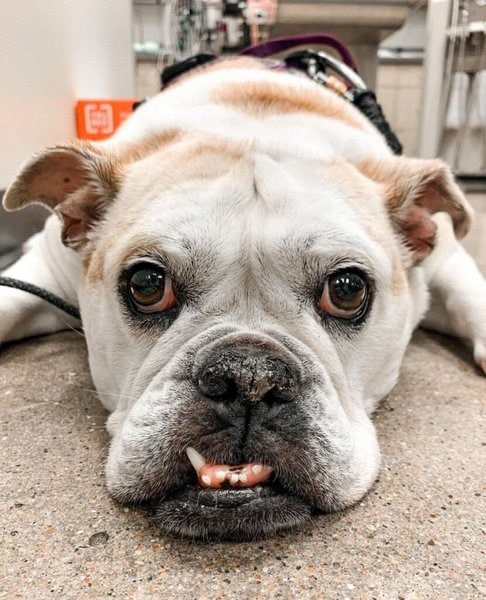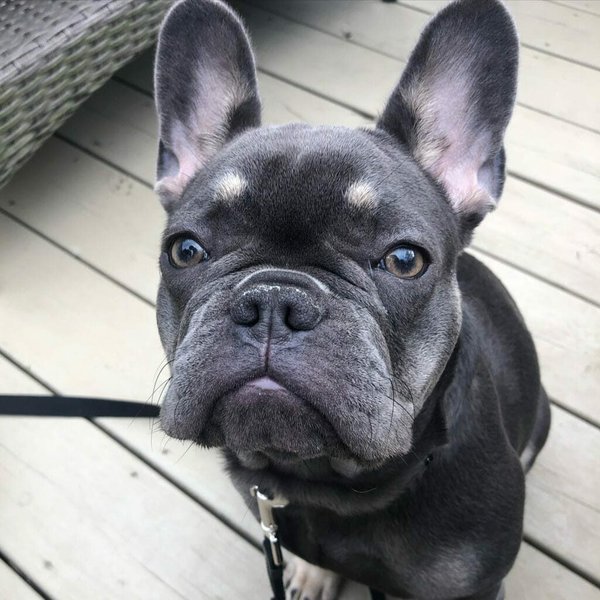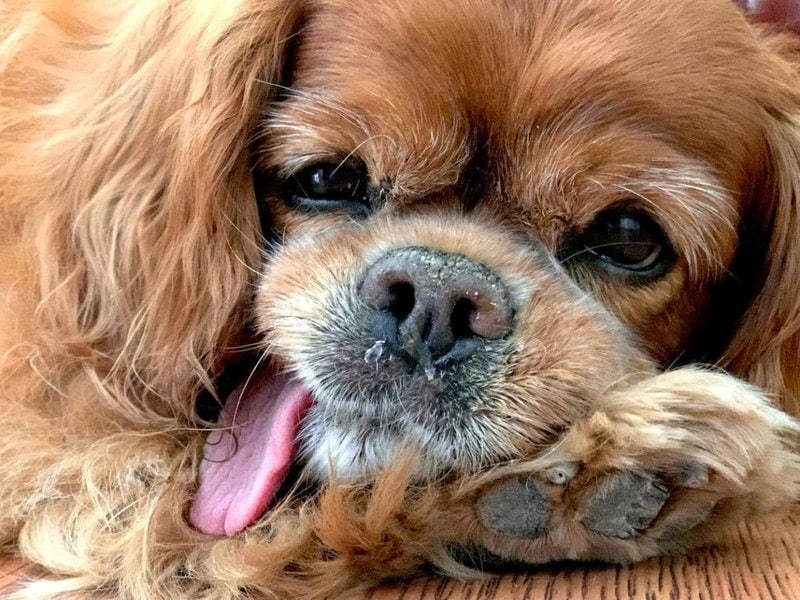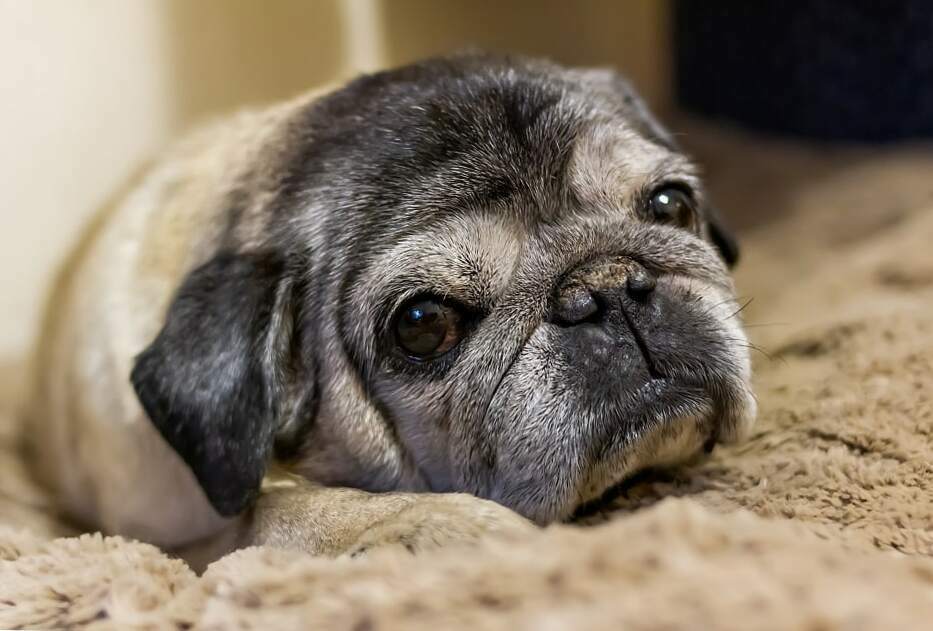It is generally accepted knowledge that dog noses need to be wet, or at least, contain traces of moisture at all times, and this is why a dry nose creates a major source of concern for dog owners. So then, do you need to be worried when your dog’s nose is dry?
A dry nose in a dog can occur due to natural reasons such as the pooch’s facial anatomy and the fact that the pooch has been aging. But in other cases, a dry nose can be an indicator of an underlying medical condition, and this is where you really need to sit up and give your pooch the best care you possibly can.
The ability to accurately gauge the underlying cause of your pooch’s dry nose is key to determining your next course of action, and we have outlined various steps you can take to remedy a pooch’s dry nose in this article. However, before we go further, let’s examine some of the various factors that may cause a pooch’s nose to dry up.
What Does It Mean When A Dog’s Nose Is Dry?
Common causes of dry and rough noses in dogs include allergies, overexposure to sun, anatomy of the dog’s face and aging. In the same vein, health issues such as nasal hyperkeratosis and autoimmune diseases may cause a dog’s nose to dry up.

Allergies
Dogs suffer from a wide variety of allergies, and a dry nose can be a sign that a pooch is suffering from any of the numerous canine food, environmental or skin allergies.
Age
Dogs’ noses tend to dry up as they age, and a drier-than-normal nose may be an indication that your dear fido is advancing in age.
Breed
Brachycephalic dog breeds, like the Bulldog, with short snouts and pushed-in faces typically find it difficult to reach and lick their noses with their tongues. And this often leaves such pooch’s noses dry.
Sunburn
Certain pooches have fairly sensitive skin. And if exposed to the sun for a considerable period, especially when playing outside, there is every chance that the dog’s nose will dry out due to sunburn, and in some cases, the nose may crack.
Sleeping A Lot
Additionally, a dry nose in a dog may mean nothing more than the fact that the pooch has been sleeping too much, and is unable to groom its nose by licking frequently.
Medical Reasons For Dry Noses In Dogs
Most of the reasons listed above for dry noses in dogs can be considered to be minor. But at the same time, a dry nose can also be a sign that a pooch is suffering from an underlying medical condition.
That said, some of the medical conditions that typically cause a dog’s nose to dry up include:
Nasal Hyperkeratosis
Nasal hyperkeratosis is a skin condition that causes excessive production of keratin by a pooch’s body, which in turn results in the hardening of nasal mucous, and subsequent nose dryness and crustiness.
Canine nasal hyperkeratosis is typically caused by a hereditary disorder or due to an infectious disease, but causes also include reaction to certain medication.
Dehydration
A dog’s dry nose can also be an indicator of a serious medical condition such as dehydration, which occurs when the pooch’s body lacks adequate water.
Dogs suffering from dehydration, apart from having dry noses, also exhibit weakness, and their skin typically fails to quickly snap back into position when pulled and released.
Dry Eyes
Dogs’ eyes and noses are connected in a way that excess moisture from the eyes drains into, and keeps the nasal passages moisturized. Consequently, if a dog is suffering from a dry eye, the nasal passage will fail to receive enough moisture, thereby resulting in a dry nose.
Autoimmune Diseases
Apart from nasal hyperkeratosis, dryness of a dog’s nose may suggest that a pooch is suffering from an autoimmune disease, with the most typical cases being Lupus and Pemphigus.
These autoimmune diseases are caused by a variety of factors including genetics, certain medication, disease-carrying ticks, among others. And they affect a pooch’s skin by causing it to dry up, and develop cracks which can be painful for the dog.

Why Are Dog Noses Usually Wet?
Now that we’ve established some of the common causes of dry noses in dogs, let’s take a look at some of the reasons why wet noses in dogs are considered to be a good thing:
For Aiding The Sense Of Smell
It has been scientifically established that wet noses work better than dry ones when evaluating a dog’s sense of smell. And the reason for this is quite simple – scent particles stick better to damp surfaces which is, in this case, the mucous present in the pooch’s nose.
For Regulating Body Temperature
Similar to panting, wet noses help to keep a dog cool under considerably hot weather conditions. And this is no thanks to the cooling effect that evaporating mucous has on the pooch.
Self-Grooming
Dogs tend to constantly lick their noses in a bid to keep it clean, and this is another very good reason why a pooch’s nose seems to always be wet.
Should I Be Worried If My Dog’s Nose Is Dry?
Most times, a dry nose in a dog is nothing to be worried about. However, the accompanying presence of signs of sickness can indicate that the pooch may be suffering from a health issue requiring medical attention.
As stated earlier, a dry nose in a dog can be a sign of dehydration, fever or nasal hyperkeratosis. And if it is established that your pooch is suffering from any of the aforementioned conditions, then you should be worried and strive to provide immediate medical treatment for the pooch.
To be certain that your pooch’s dry nose isn’t due to an underlying medical condition, you should watch out for other symptoms typically shown by sick dogs. And some of the symptoms commonly exhibited by sick dogs, in addition to a dry nose, include:
- Lethargy
- Vomiting
- An increase or decrease in appetite
- Diarrhea, and many more
Diagnosing dehydration in dogs via a dry nose isn’t always accurate, and the American Kennel Club recommends examining a pooch’s gums to diagnose dehydration to a degree of accuracy.
Moist and pinkish gums are commonly observed in healthy dogs, while a dry, pale gum can be a sign of dehydration and other medical conditions.

How Do I Fix My Dog’s Dry Nose?
You can fix your dog’s dry nose by keeping the pooch hydrated, preventing overexposure to the sun, and avoiding over-exercising the pooch. And if you notice additional symptoms in your dog along with a dry nose, you should book an appointment with the vet to carry out a medical examination.
Ensure Your Dog Has Constant Access To Water
To prevent issues with dehydration, and a subsequent dry nose, you should make it easy for your pooch to always have access to clean, fresh water.
Avoid Overexposing The Dog To Sun
You should avoid leaving your dog to play in the sun for extended periods to avoid sunburns, and over-exercising the pooch should be avoided, as this can easily result in dehydration.
If it’s absolutely necessary that you walk your dog in the sun, you should coat the pooch’s nose and muzzle with dog-friendly sunscreen to protect against sunburns.
For dogs already with a dry nose from sunburn, you can rub the affected areas with either coconut oil, olive oil, castor oil or almond oil to provide relief and immediately moisturize the dry areas.
Remove Allergy Triggers
Sometimes a dog’s dry nose may be the pooch’s natural response to certain allergens, and the solution in this case is as simple as getting rid of these allergens.
However, the list of allergens that cause reactions in dogs is endless, and diagnosing and getting rid of whatever allergen is responsible for your pooch’s dry nose is easier said than done.
Consequently, you can go about eliminating your dog’s allergies by observing the pooch’s reactions and getting rid of substances that are commonly known to cause allergic reactions in dogs, before working your way to the less common substances.
Visit Your Vet
If you suspect that your pooch’s dry nose is due to an underlying medical condition, and you notice the occurrence of additional symptoms, you should immediately book an appointment with your vet for a comprehensive medical examination.
Medical treatments for dry noses in dogs vary, and are largely influenced by the underlying causes. Your vet may prescribe a lotion designed to keep the pooch’s nose hydrated, and antihistamines or steroids may also be prescribed to deal with allergies responsible for nose dryness.
Also, because most dogs tend to lick their noses, whatever lotion that is prescribed to counter the dry pooch’s dry nose must be safe to ingest. Vaseline shouldn’t be rubbed on your dog’s nose as it can be extremely toxic to a pooch when ingested in large quantities.





